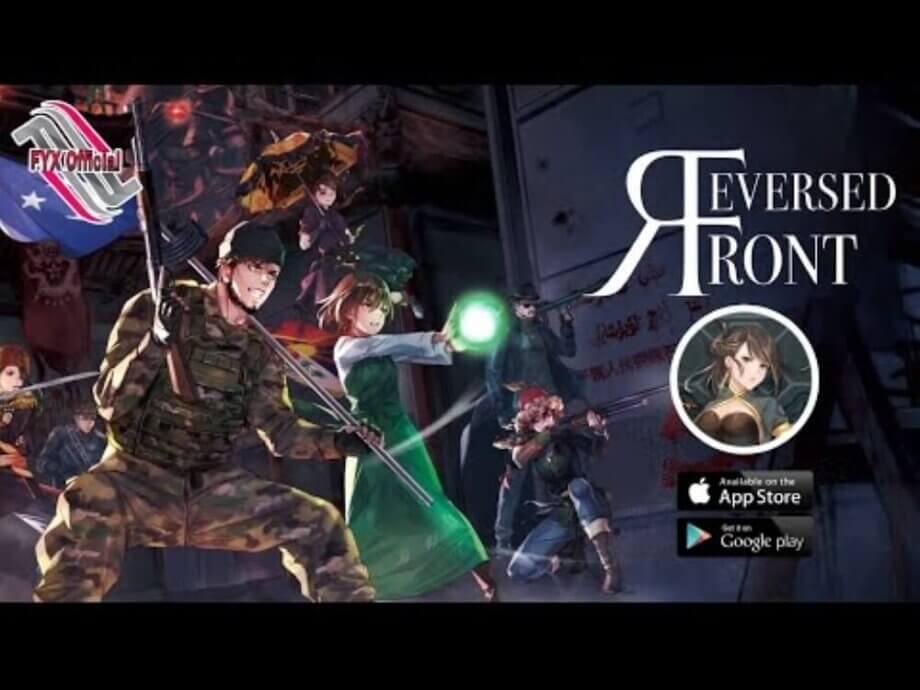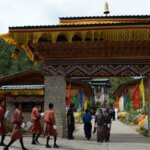Hong Kong Bans Taiwanese Video Game: A Landmark in Digital Censorship
In June 2025, Hong Kong authorities issued an unprecedented warning to residents: downloading, sharing, or even recommending the mobile game Reversed Front: Bonfire could constitute a criminal offense under the city’s sweeping national security laws. The game, developed by the Taiwanese group ESC Taiwan, was accused of advocating armed revolution and promoting secessionist agendas, including “Taiwan independence” and “Hong Kong independence.” This marks the first time Hong Kong has invoked its national security legislation to ban a video game, signaling a significant expansion of digital censorship in the region.
- Hong Kong Bans Taiwanese Video Game: A Landmark in Digital Censorship
- What Is ‘Reversed Front: Bonfire’?
- Why Did Hong Kong Ban the Game?
- Reactions from Developers and the Public
- Broader Context: National Security Law and Digital Censorship
- Comparisons and Precedents: Not the First Digital Crackdown
- Developer Profile: ESC Taiwan and Their Mission
- Publicity and the ‘Streisand Effect’
- Expert and Legal Perspectives
- International and Regional Reactions
- In Summary
The ban quickly led to the game’s removal from both Apple’s App Store and Google Play in Hong Kong, though it remains available in other regions. The move has sparked debate about freedom of expression, the reach of China’s censorship apparatus, and the future of digital entertainment in Hong Kong.
What Is ‘Reversed Front: Bonfire’?
Reversed Front: Bonfire is a war-themed strategy game featuring anime-style illustrations and turn-based battles. Players can choose to align with various factions—such as Hong Kong, Taiwan, Tibet, Mongolia, Xinjiang (home to the Uyghur minority), and others—to fight against the Chinese Communist Party (CCP). Alternatively, players can opt to play as government soldiers defending the regime. The game’s narrative is steeped in political commentary, with characters and storylines inspired by real-world protest movements and regional independence campaigns.
According to the game’s website, players can “pledge allegiance” to different groups “to overthrow the Communist regime.” The developers describe the game as a “work of non-fiction,” stating that “any similarity to actual agencies, policies or ethnic groups of the PRC in this game is intentional.” The game also features references to Hong Kong’s protest culture, including characters modeled after activists and the use of banned protest anthems like “Glory to Hong Kong.”
ESC Taiwan, the developer, is a group of anonymous volunteers critical of the CCP. They have previously released a board game with similar themes and have raised significant funds through crowdfunding in Taiwan and Hong Kong. The group claims that a portion of the game’s revenue is donated to anti-CCP organizations abroad.
Why Did Hong Kong Ban the Game?
The official rationale for the ban centers on national security. In a statement, Hong Kong’s National Security Department warned that the game “advocates armed revolution and the overthrow of the fundamental system of the People’s Republic of China.” Authorities stated that anyone who downloads, shares, or recommends the game—or provides financial support to its developers—could be prosecuted for incitement to secession, subversion, or possession of seditious material. Even making in-app purchases could be considered a criminal act.
Police emphasized the seriousness of these offenses, urging residents to uninstall the game immediately and not to “defy the law.” The government also required internet service providers and app platforms to disable access to the game, leveraging powers granted under the 2020 Beijing-imposed National Security Law (NSL) and a local security law passed in 2024.
Legal Mechanisms and Enforcement
The NSL, imposed by Beijing in 2020 following the 2019 pro-democracy protests, criminalizes secession, subversion, terrorism, and collusion with foreign forces. The law grants authorities broad powers to suppress dissent, including the ability to order the removal of digital content deemed a threat to national security. Service providers who fail to comply can face hefty fines and imprisonment.
Senior legal advisers in Hong Kong have noted that while it may be difficult to prosecute individuals who download the game from overseas websites, authorities can still block access within the city and pursue legal action against those found in possession of the game or involved in its distribution.
Reactions from Developers and the Public
The ban has had an unintended consequence: it catapulted Reversed Front: Bonfire to the top of Google’s search trends in Hong Kong. The developers, ESC Taiwan, responded with a mix of defiance and irony, thanking authorities for the “free publicity” and posting screenshots of the game’s surge in popularity. In a public statement, they asserted:
This is not a fantasy. It is non-fiction, wrapped in a game. The CCP saw the reflection and couldn’t handle the truth.
ESC Taiwan representatives also highlighted the game’s dual narrative, allowing players to support either the CCP or its opponents. They argued that while the game permits expression of pro-CCP views, the Chinese government does not tolerate dissenting voices in reality.
Among Hong Kong’s gaming community, reactions have ranged from fear to frustration. Some players quickly deleted chat logs and distanced themselves from the game, wary of potential legal repercussions. Others criticized the government’s response as an overreach, with one gamer telling Radio Free Asia:
It’s absurd that the government fears this game, especially when players are free to choose any faction—including the Red Army. Their reaction just reflects an authoritarian regime’s deep fear of freedom and how brittle the system really is.
Broader Context: National Security Law and Digital Censorship
The ban on Reversed Front: Bonfire is part of a broader campaign by Chinese and Hong Kong authorities to tighten control over digital content and suppress dissent. Since the imposition of the NSL in 2020, Hong Kong has seen a dramatic erosion of civil liberties, with numerous arrests of activists, journalists, and opposition figures. The law’s reach has extended from traditional media and literature to online platforms, music, and now video games.
Previous targets of digital censorship include the protest anthem “Glory to Hong Kong,” which was ordered removed from online platforms, and the popular game Animal Crossing, which was banned in mainland China after players used it to display pro-democracy slogans. The expansion of censorship to video games reflects a new frontier in the authorities’ efforts to enforce ideological conformity and control the narrative in both physical and virtual spaces.
Implications for the Gaming Industry and Free Expression
The gaming industry in Hong Kong and greater China now faces heightened scrutiny. Developers must navigate a complex landscape of regulations, with the risk that content deemed politically sensitive could result in bans, legal action, or worse. The case of Reversed Front: Bonfire has raised alarms among human rights advocates and industry observers, who warn that the crackdown could stifle creativity and limit the diversity of voices in digital entertainment.
Maya Wang, associate China director at Human Rights Watch, commented on the broader trend:
Hong Kong authorities must constantly keep finding something and someone to target in order to signal to Beijing that it is diligent and that it is taking ‘national security’ very seriously.
Critics argue that the ban is symptomatic of a shrinking civic space in Hong Kong, once known for its open internet and creative freedom. The move has also drawn international attention, with media outlets and advocacy groups highlighting the chilling effect on free expression and the potential for further restrictions on digital content.
Comparisons and Precedents: Not the First Digital Crackdown
While this is the first time a video game has been banned under Hong Kong’s national security laws, it is not the first instance of digital platforms being targeted for political reasons. In 2020, the protest song “Glory to Hong Kong” was the subject of a legal battle, with authorities seeking an injunction to block its distribution. The case went through multiple appeals, reflecting the government’s determination to control online narratives.
Other games, such as Animal Crossing, have also faced bans in mainland China for their use as platforms for political expression. The escalation to banning a game in Hong Kong, however, marks a significant shift, as the city had previously enjoyed greater autonomy and freedom of expression under the “one country, two systems” framework.
Developer Profile: ESC Taiwan and Their Mission
ESC Taiwan, the developer behind Reversed Front: Bonfire, describes itself as a civilian volunteer group established in 2017 to coordinate with overseas anti-Communist organizations and assist foreign allies with outreach and organizing efforts. The group is composed mainly of Taiwanese members, with some Hongkongers and Mongolians, and operates with a small core team supported by volunteers.
Their games are funded through crowdfunding campaigns, with the 2019 campaign raising over HK$6 million (US$760,000). ESC Taiwan has stated that their mission is to provide a platform for political commentary and to support movements advocating for self-determination and independence in East Asia. The group’s willingness to tackle sensitive topics has made them a target for criticism from Chinese state media, which has accused them of promoting separatism.
Publicity and the ‘Streisand Effect’
Ironically, the government’s efforts to suppress Reversed Front: Bonfire have only increased its visibility. The so-called “Streisand Effect”—where attempts to hide or censor information lead to greater public attention—has played out in real time. Following the ban, the game became the most searched term on Google in Hong Kong, and its download numbers surged globally.
ESC Taiwan has embraced this outcome, using social media to highlight the spike in interest and to mock the authorities’ attempts at censorship. The group’s Facebook page has seen a significant increase in followers and engagement, further amplifying their message.
Expert and Legal Perspectives
Legal experts in Hong Kong have noted the challenges of enforcing the ban, particularly when it comes to downloads from overseas websites. However, the authorities’ ability to block access within the city and prosecute individuals found in possession of the game underscores the far-reaching powers granted by the NSL.
Ronny Tong Ka-wah, a senior counsel and member of the Executive Council, explained that while enforcement may be difficult in some cases, the government retains the option to block websites and pursue legal action when opportunities arise. The choice of enforcement tools depends on the circumstances, and authorities may seek court injunctions if platform cooperation is not forthcoming.
Industry observers warn that the precedent set by this ban could have a chilling effect on other developers, both in Hong Kong and abroad. The risk of legal action and the threat of being labeled a national security threat may deter creators from tackling politically sensitive subjects, leading to greater self-censorship and a narrowing of the digital public sphere.
International and Regional Reactions
The ban has drawn criticism from press freedom and human rights organizations, who view it as another step in the erosion of civil liberties in Hong Kong. International media have highlighted the case as emblematic of China’s growing influence over the city’s digital landscape and the shrinking space for dissent.
Within the region, the move has been seen as part of a broader campaign to enforce ideological conformity and suppress movements advocating for independence or greater autonomy. The inclusion of groups such as the Uyghurs, Tibetans, and Mongolians in the game’s narrative has further heightened sensitivities, given the Chinese government’s longstanding efforts to control narratives about these regions.
In Summary
- Hong Kong authorities have banned the Taiwanese-developed game Reversed Front: Bonfire under national security laws, citing its alleged promotion of armed revolution and secessionist agendas.
- This is the first time a video game has been banned in Hong Kong under the NSL, marking a significant expansion of digital censorship.
- The game allows players to choose sides in a simulated conflict involving Hong Kong, Taiwan, Tibet, and other groups, with overt political themes and references to real-world protest movements.
- Authorities warned that downloading, sharing, or recommending the game—or providing financial support to its developers—could result in prosecution for incitement to secession, subversion, or possession of seditious material.
- The ban has sparked debate about freedom of expression, the reach of China’s censorship apparatus, and the future of digital entertainment in Hong Kong.
- ESC Taiwan, the game’s developer, has embraced the publicity generated by the ban, highlighting the surge in interest and downloads.
- Legal experts and human rights advocates warn that the move could have a chilling effect on creativity and free expression in the region’s gaming industry.
- The case reflects a broader trend of tightening control over digital content and the shrinking of civic space in Hong Kong since the imposition of the NSL in 2020.












